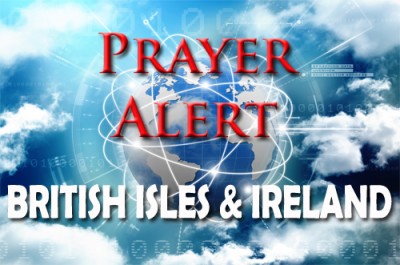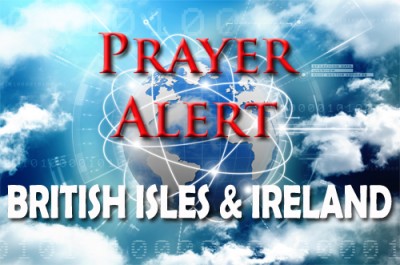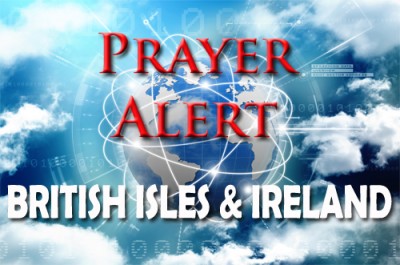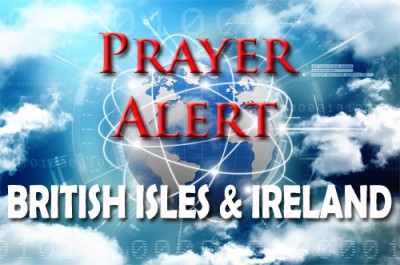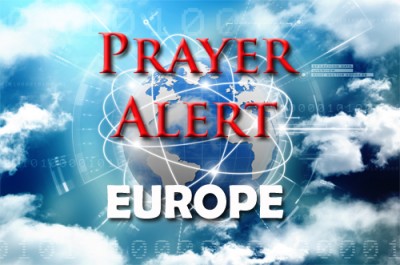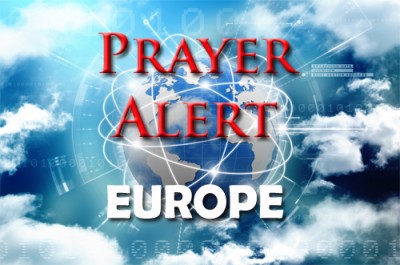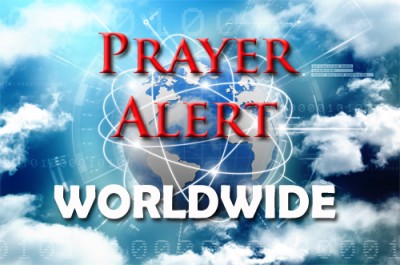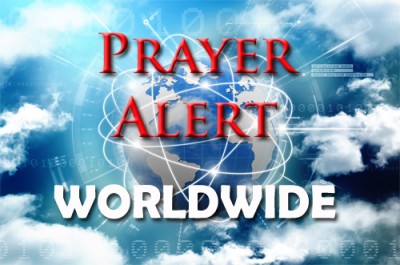Crowd-sourcing for Bibles
19 Aug 2016Churches, homeless missions, street pastors, foodbanks and other organisations that want to raise money for new Bibles can use a new crowd-sourcing website designed by the leading Christian publisher of New International Version Bibles, Hodder Faith. The site, givingbibles.com, enables organisations to set up an appeal within minutes and then share it with friends, family and other supporters. Hodder Faith said, ‘GivingBibles.com is a very exciting new venture. With more and more churches and Christian organisations embracing digital methods to communicate with their members and supporters, it's great to be providing such a valuable tool to enable them to provide the Bible resources they need.’ Ian Metcalfe, director of publishing at the group, said, ‘This is the most exciting initiative I have been involved with in my whole time in publishing, and it is amazing to see it come to life’.
Stop 'revolving door' to prison
19 Aug 2016Against a backdrop of violence and deaths behind bars, the number of people in prison due to be recalled is up 15% in a year (55 times greater than in 1993) according to the Howard League for Penal Reform. Thousands have been recalled to custody in recent months, putting additional pressure on prisons already struggling to cope with chronic overcrowding, prompting alarming statistics on safety and deep budget cuts. It follows the implementation of the Offender Rehabilitation Act 2014, which enabled the part-privatisation of the probation service and extended licence conditions to people who had served prison sentences of less than 12 months. The Howard League argues that the possibility of recall to prison as a consequence of a breach of licence should be removed. New crimes can be dealt with separately and community penalties can be imposed for breaches of licence that do not amount to a criminal offence. The proposal would ease prison numbers and not require new legislation.
Christians urged to confront radical preachers
19 Aug 2016Doctor Antony McRoy, a Christian expert on Islamic extremism, has said Christians have a duty to directly challenge radical Islamist preachers like Anjem Choudhary, who was convicted of terror offences after encouraging people to join Islamic State. There has been a call to review UK anti-terror laws. Mr Choudhary was able to preach radical Islam openly on social media and in public for years before he was finally arrested in 2014. Mr McRoy, who has met Anjem Choudhary and some of the terrorists he has radicalised several times, has said Christians have ‘hidden’ in their churches rather than confronting erroneous teaching. He said, ‘We've got to ask ourselves - how many confronted him personally? How many Christians went up to him to take him on? How many Christians do this to his supporters?’
Call to UK to stop arming Saudi Arabia
19 Aug 2016CAAT (Campaign Against Arms Trade) have reported that the UK is arming Saudi Arabia despite overwhelming evidence that its weapons, including fighter jets and bombs, are being used against civilians in Yemen. Since the collapse of peace talks on 6 August 2016 the Saudi-led coalition has intensified its devastating bombing campaign in Yemen. Between 11 and 18 August Saudi-led forces are accused of bombing a food factory (killing fourteen people), a school (killing ten, including children), and most recently a Médecins Sans Frontières hospital (killing eleven). CAAT says that since the bombing campaign began in March, the UK has licensed £3.3 billion worth of arms to the Saudi government. The destruction of Yemen has created a humanitarian catastrophe. The civilians are paying the highest price, and many believe the UK Government has been complicit in the devastation, having provided bombs, fighter jets and an uncritical political support for the regime.
Turkey-EU clash just a matter of time?
19 Aug 2016President Erdogan is issuing warnings that Turkey will stop taking refugees back from the EU if it fails to waive visa restrictions for Turks. The two sides are on a collision course with emergency rule declared after the failed 15 July coup suspending a series of basic rights and freedoms in Turkey - making the planned visa waiver even more difficult and hastening the course toward confrontation . The row was aggravated by a psychological factor as Erdogan feels anger and mistrust toward EU leaders who, according to him, failed to extend him adequate support after the uprising. The Turkish press are calling his warnings a ‘showdown.’ Continue to pray for Turkish citizens living under the state of emergency, with legislative decrees exempt from constitutional checks, freedoms suppressed, and the European Convention on Human Rights put on hold.
Irish parents’ financial support for children
19 Aug 2016The majority of students attending third level institutions will be financially supported by their parents spending an average of €447 each month, an Irish League of Credit Unions survey has found. Out of the 87% of parents who decide to support their children, 60% will be getting into debt to do so. All told, just under three quarters of parents polled said they would struggle to cover the cost of their child’s third level education. The average amount of debt parents will accrue is put at €4,300; on average, parents save for eight years to cover those costs for their children, and manage to accumulate €8,150 over that period. Employment prospects after graduation are the biggest concern for parents, with 32% saying this was what worried them the most.
Athletes for Christ prayer request
19 Aug 2016Alex Ribeiro, the former Brazilian F1 driver, has just written a book translated into English called ‘Power to Win’. It is full of testimonies of God’s work amongst prominent Brazilian athletes, and brings a powerful Gospel message to readers. The book is being given out at the Olympic village at this very moment. This is an amazing opportunity. Because of the massive media attention on sports and sports people, they will be able to spread the Gospel far better than we can. However, the Athletes for Christ team is having problems in getting the book into athletes’ hands. Please pray for obstacles to be removed, for big doors to be opened and for many Olympic athletes to come to Christ. Please continue to pray for protection for the athletes and those involved in running the Games. Please pray for the 'righteous' athletes, those not taking performance enhancing substances, to be the true medal winners.
Pakistan: kidnapping of children escalating
19 Aug 2016There has been a rash of child kidnappings in recent months, increasing to alarming numbers (300 in one city in two weeks). The police are ineffective, resulting in vigilante forces being formed. Vigilantes recently stopped an ambulance carrying twelve children. The driver was tortured and accused of kidnapping when his trip was a legitimate one. Criminals are growing even more daring. Some children are forced into prostitution and begging, some are found with major body parts removed, including kidneys, eyes and hearts; obviously feeding a lucrative illegal black market for body transplants. Equally disturbing are those being trained to be suicide bombers. A Lahore Christian believer writes that over 900 children have been kidnapped. Local Christians are fasting and praying for divine intervention in this atrocity perpetrated against young and helpless children. Will you join them in prayer?
